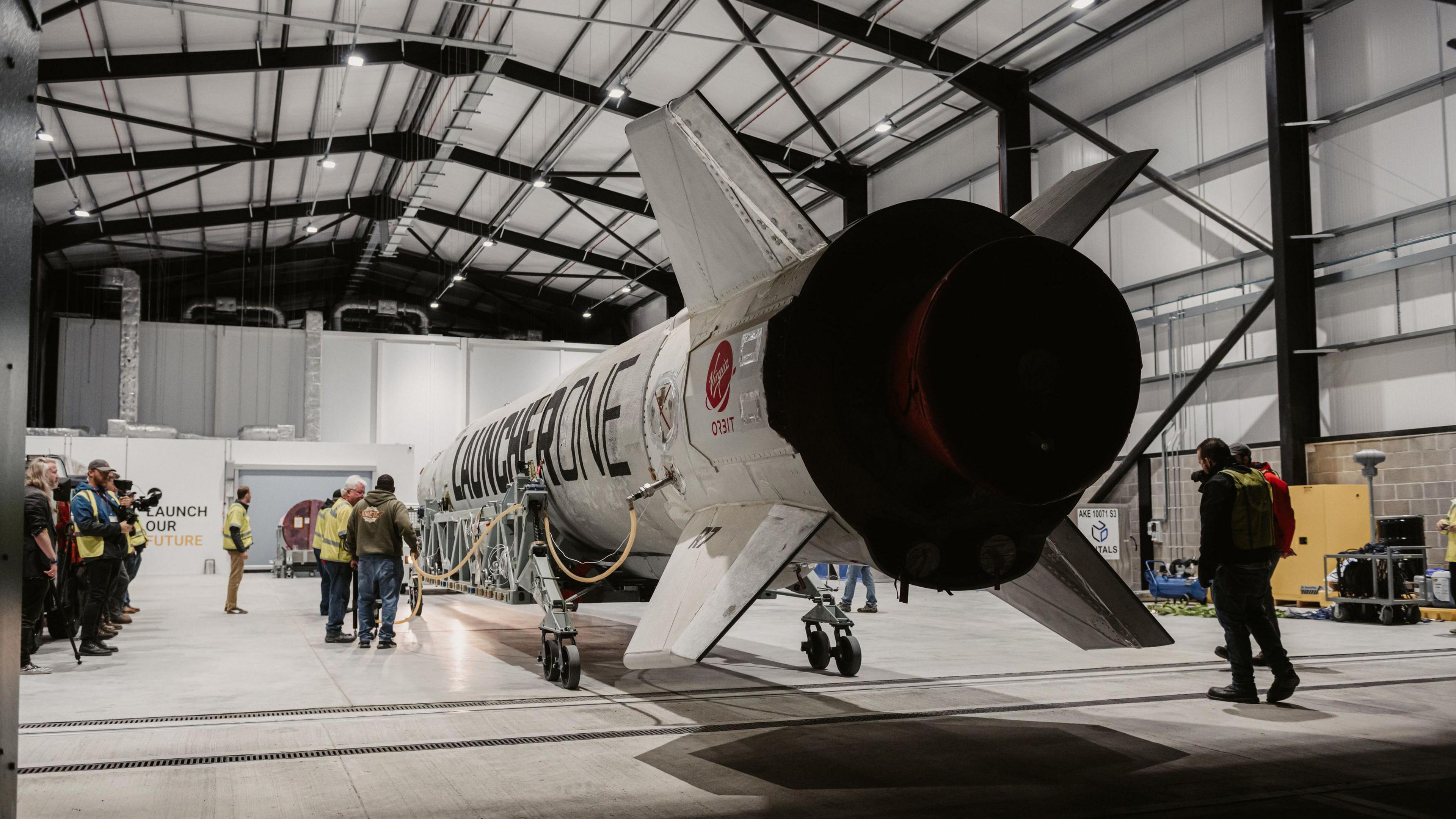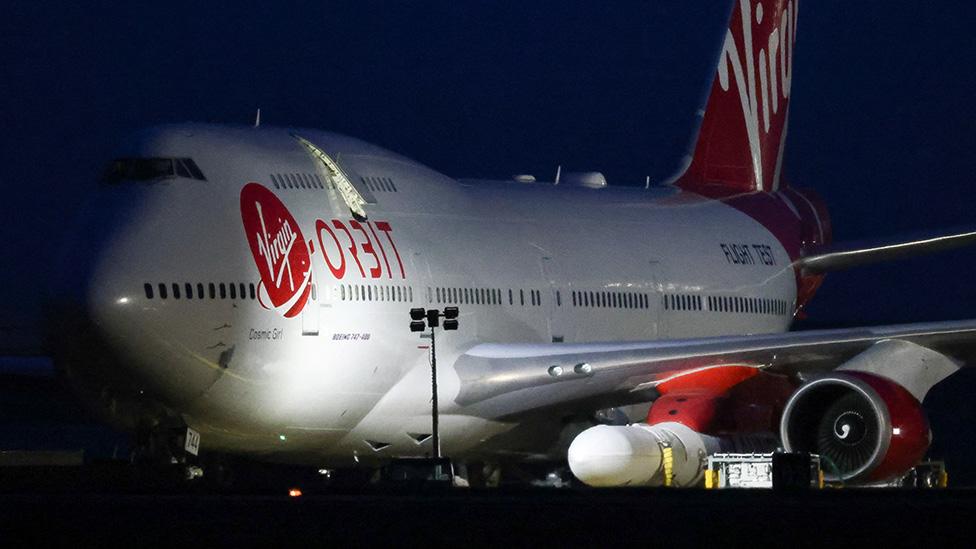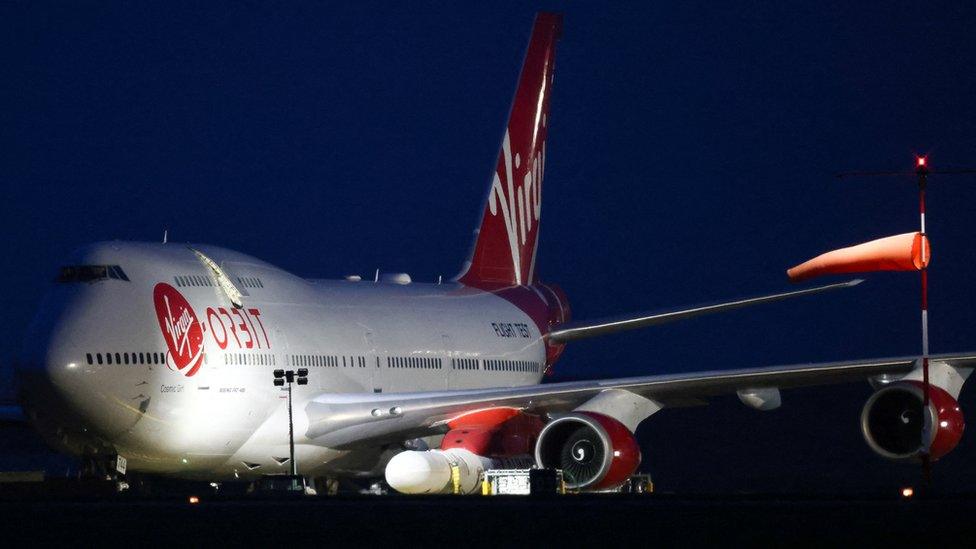Faulty fuel filter caused failed rocket launch

The dislodged fuel filter caused a chain reaction leading to the failed rocket launch
- Published
The first ever satellite mission launched from UK soil failed due to a dislodged fuel filter, an investigation by the Air Accidents Investigation Branch (AAIB) has found.
A jumbo jet operated by the American Virgin Orbit company carried a rocket out of Newquay, Cornwall, to release it high over the Atlantic Ocean on 9 January 2023.
The AAIB said the mission went as expected until "it is likely" that a fuel filter located in the the hose that transfers fuel from one point to another "dislodged from its normal position".
The report said, external: "This led to a series of events that caused the second stage engine to shut down prematurely."
Premature shut down
AAIB investigators said the dislodged fuel filter caused the fuel pump to operate at a lower efficiency.
The report added that this resulted in the amount of fuel being injected into the engine "being lower than expected".
That, in turn, caused the engine to reach a significantly higher temperature than expected and the components near to the hot engine malfunctioned causing the second stage engine to shut down prematurely, and the reduction of thrust meant the stage fell back to Earth.
The second stage and the satellites landed in the Atlantic Ocean, north of the Canary Islands.
Cosmic Girl, the carrier 747 jet, returned safely to base.
The mission had been billed as a major milestone for UK space, marking the birth of a home-grown launch industry.
Follow BBC Cornwall on X (formerly Twitter), external, Facebook, external and Instagram, external. Send your story ideas to spotlight@bbc.co.uk, external.
Related topics
- Published10 January 2023

- Published9 January 2023
